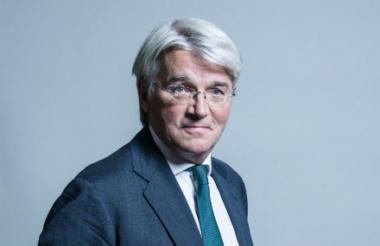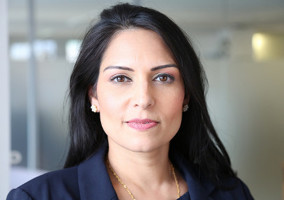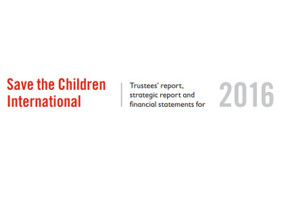Government money should not be used to fund charity core costs, and particularly not the cost of lobbying, a prominent Conservative politician told his party conference.
Andrew Mitchell, a former Secretary of State for International Development , was speaking at a fringe event organised by the Barrow Cadbury Trust and the Charities Aid Foundation about how civil society can help to grow the UK’s influence abroad.
Speaking about the anti-advocacy clause in grant contracts, which was watered down from the original proposals, he said it was appropriate because charities “should get core funding from their members” to be able to “go out and campaign”.
He said government funding should be seen as additional, and described it as “BOGOF – buy one get one free”.
“If you are a charity and pursuing aid you should come to government and say ‘we spend £1m achieving x and if you add £1m we will be able to do more than two x as a result,’ he explained.
“That is the right relationship,” he said. “We should not be funding direct advocacy – that is for people who believe in an amazing charity to do for themselves.”
Mitchell also said that when he was International Development Secretary he remembered “picking up a newspaper and reading that a well-known international aid charity was slagging off the government” but that the same charity had a meeting with him that day “to ask for more money”.
“It's human nature that you don’t slag off people in the morning and in the afternoon ask for money,” he said.
Mitchell also spoke about how international aid was a key part of Britain’s influence as a soft power.
He said he was “incredibly proud” of the commitment to spend 0.7 per cent of income on UK aid as it “does give Britain “real reach”.
Conservative thinking now dominates aid policy
At a reception earlier in the week, hosted by Bond and the Conservative Friends of International Development to celebrate the tenth anniversary of Project Umubano - a social action project, which has enabled party members to volunteer in developing countries, Mitchell said that Conservative thinking now dominates aid policy.
Mitchell said: “In 2005 this sector was dominated by the Labour Party.”
He estimated that 98 per cent of the sector was influenced or connected to the left.
“It was so bad that in 2005 when David Cameron took over and I was made shadow international development secretary they all had a meeting to discuss whether they needed to talk to me,” he added.
He credited Justin Forsyth, who was a former special adviser to Tony Blair and Gordon Brown and at the time running Save the Children, for convincing the rest of sector to talk to him.
Mitchell said that the landscape has now “completely flipped”, with right wing thinking now dominating discussions about international aid.
“There has not been a single new idea from the Labour Party in recent years,” he said.
Charities challenged to make case for aid
Conservative politicians also used their conference this week to challenge charities to make the case for aid spending to the public and the media better.
Mitchell also said it was important to make the case for international development spending which is an “investment in the next generation”.
He said that Project Umubano had given many in the party first-hand experience and the “opportunity to see for themselves what works and what doesn’t work”.
This means that when the Daily Mail attacks aid spending people in the party “understand” it and “make the case”.
Later in the week at a reception hosted by Save the Children and Conservative Home, the MP Stephen Crabb, said he wanted to “challenge” aid charities to be more vocal and mobilise their supporters.
When he was first elected in 2005 he said he got a lot of emails from various constituents about the Make Poverty History campaign but this doesn’t happen now.
To “shore up the case for aid”, he said politicians “need to hear from grass roots” and urged the sector to “build support for aid”.
He said: “We should be proud of what we do as a nation” and called on charities to try and get more positive newspaper coverage about aid, because “we need to change some hearts and minds there too”.
'We don't turn our backs'
The current International Development Secretary, Priti Patel also spoke at the Save the Children and Conservative Home event, where she said the 0.7 per commitment was “important” as it shows in Britain “we don’t turn our backs” and that the “values we project really matter”.
She also paid tribute to Save the Children and other aid charities saying DfID has some “amazing partnerships” with a “range of organisations including Save the Children” making it possible to do some “amazing work around the world”.
‘We need to get better at explaining what we do’
Earlier in the week Theo Clarke, who was until recently director of Conservative Friends of International Development and is now the chief executive of the Coalition for Global Prosperity, said supporting international development was “part of our DNA as a party” and that civil society has an important role.
But she said: “As a sector, and for those of us working in international development we need to get much better at explaining what we do and why to make the case for why aid and development matters.”
She said this will be a focus of a new role at CGP, which is being backed by the Bill and Melinda Gates Foundation.
|
Related articles











